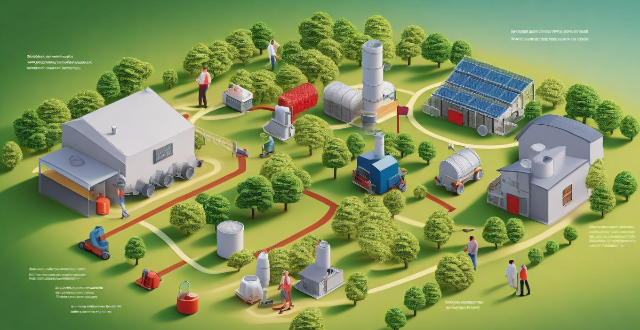Renewable energies play a crucial role in achieving climate objectives by reducing greenhouse gas emissions, promoting energy security, and driving economic growth. By transitioning to renewable sources such as solar, wind, hydro, and geothermal power, we can reduce the overall carbon footprint of our energy systems and mitigate the effects of climate change. Renewable energies also promote energy security by diversifying energy sources, increasing local energy production, and stabilizing energy prices. Additionally, the transition to renewable energies creates job opportunities, stimulates innovation, and attracts investment, contributing to economic growth. Overall, prioritizing the development and adoption of renewable energy technologies is essential for achieving a cleaner, more sustainable future.

The Role of Renewable Energies in Achieving Climate Objectives
Renewable energies play a crucial role in achieving climate objectives by reducing greenhouse gas emissions, promoting energy security, and driving economic growth. Here are some key points to consider:
Reducing Greenhouse Gas Emissions
- Low Carbon Emissions: Renewable energies such as solar, wind, hydro, and geothermal power generate electricity with significantly lower carbon emissions than fossil fuels. By transitioning to renewable sources, we can reduce the overall carbon footprint of our energy systems.
- Mitigating Climate Change: As renewable energies become more prevalent, they help mitigate the effects of climate change by reducing the reliance on fossil fuels, which are major contributors to global warming.
- Decarbonizing Industries: Renewable energies can also be used to decarbonize industries such as transportation, manufacturing, and buildings, further reducing greenhouse gas emissions across various sectors.
Promoting Energy Security
- Diversifying Energy Sources: By incorporating renewable energies into our energy mix, we can diversify our sources of energy and reduce dependence on imported fossil fuels. This promotes energy security and resilience against supply disruptions.
- Increasing Local Energy Production: Renewable energies can be produced locally, reducing the need for long-distance transmission and increasing energy independence at the community level.
- Stabilizing Energy Prices: While renewable energy technologies may have higher upfront costs, they offer stable operating costs over time, which can help stabilize energy prices for consumers.
Driving Economic Growth
- Creating Job Opportunities: The transition to renewable energies creates new job opportunities in industries such as solar panel manufacturing, wind turbine installation, and energy storage system development. These jobs contribute to economic growth and provide sustainable employment options.
- Stimulating Innovation: The demand for renewable energies drives innovation in areas such as battery technology, smart grid infrastructure, and energy efficiency solutions. This innovation not only benefits the renewable energy sector but also has broader implications for technological advancement and economic competitiveness.
- Attracting Investment: As awareness of climate change and its impacts grows, investors are increasingly looking for sustainable investment opportunities. The renewable energy sector offers attractive returns for investors while aligning with environmental goals.
In conclusion, renewable energies play a vital role in achieving climate objectives by reducing greenhouse gas emissions, promoting energy security, and driving economic growth. By prioritizing the development and adoption of renewable energy technologies, we can work towards a cleaner, more sustainable future for ourselves and generations to come.